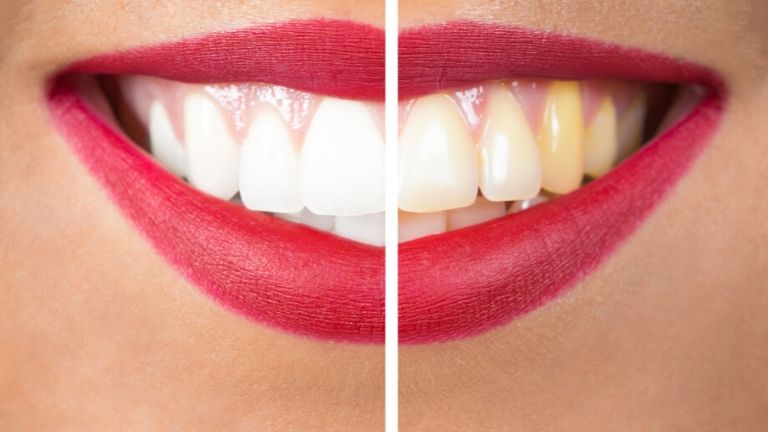Rotting, discolouration and bad breath are just some of the ways your daily sugary treats are ruining your teeth – and even fruit counts as sugar, says dentist James Goolnik
Sugar is a smooth criminal we have all been struck by. Who can blame us? It’s highly addictive.
Not only is it addictive, it’s everywhere: added and hidden in our food but also found naturally in many foods too such as fruit – it can be impossible to avoid it completely.
Unfortunately for us, sugar is responsible for the growing tooth decay epidemic, witha staggering 92% of adults aged between 20 to 64 suffering from dental decay.

Healthista spoke to James Goolnik, the founder of Bow Lane Dental who is on a mission to help the world to kick their sugar habit and prevent tooth decay.
A dentist’s battle against sugar
I have been a dentist for the past 26 years repairing the damage sugar does to mouths. Dentists are unfortunately losing the battle against sugar, myself included.
There is just as much dental disease as there was when I first qualified as a dentist. Despite the advances in modern medicine, tooth decay is rampant, especially in our young ones, especially in children aged five to nine.
Research has shown, 26,000 children aged five to nine were admitted to hospital due to tooth decay between 2017 to 2018.
More than double the number of children were admitted to hospital for dental caries (cavities) than tonsillitis and the number has risen for the second consecutive year in this age group.
It is shocking, as no five to nine year old buys their own food or drink, that’s chosen by adults!
Does sugar from fruit have the same effect?
The quick answer is yes, so you need to limit your portions.
Whole fruit contains fibre which helps to slow down the absorption of sugar, which is why it is preferable to eat a whole piece of fruit rather than drinking the juice.
This is because almost all of the fibrous material (found in the skin and pulp) gets removed when the fruit is turned into juice. That’s why you can only manage to eat one or two apples at once, but you could quite easily drink a litre of apple juice without feeling full at all. The pulp, skin and fibre fill you up and limits your consumption.
The other thing you need to consider when eating fruit is that some fruits are acidic, which can lead to dental erosion and sensitive teeth.
Acidic fruit such as grapes, blueberries, pineapples, apples,peaches and oranges should be eaten with meals and while drinking water to help neutralise the acid.
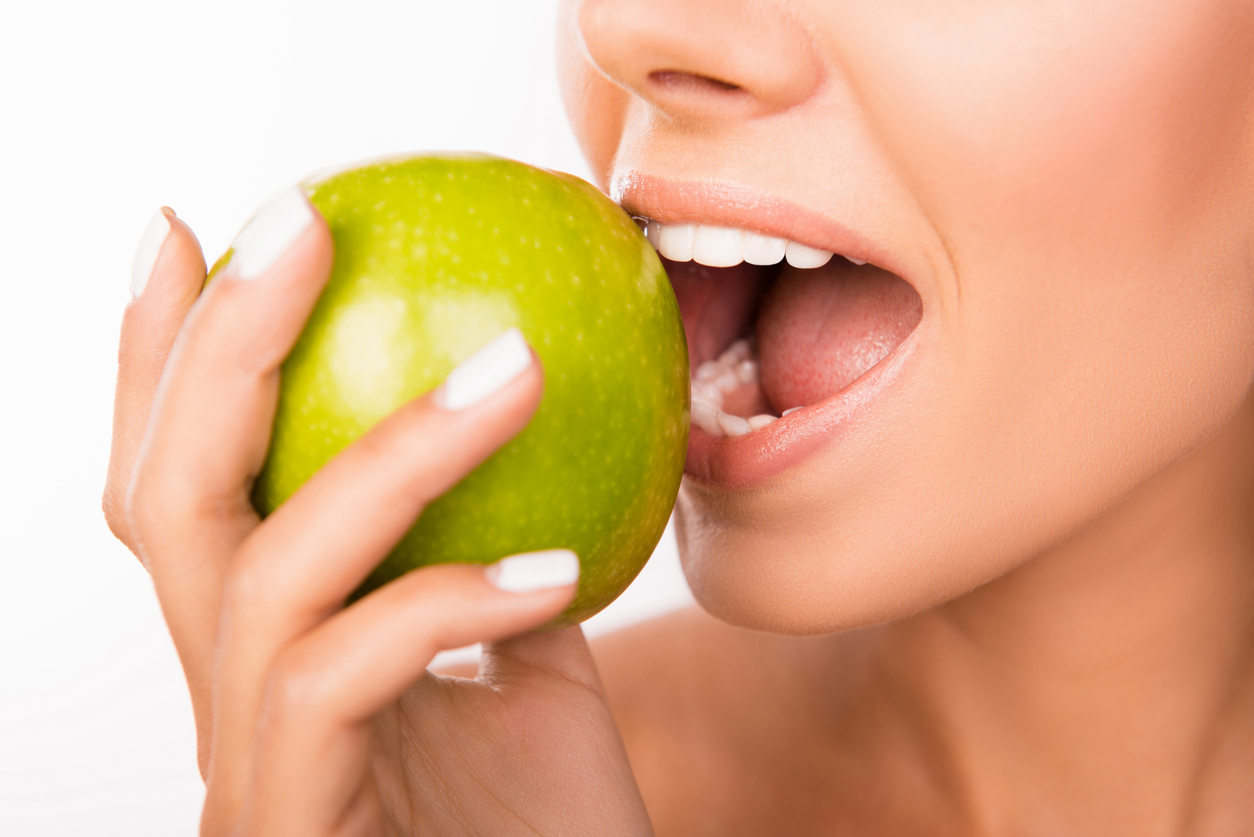
You can work with your dental team to help replace the sugar in your diets. Not only will your teeth and mouth become healthier but also the rest of your body.
Most people see their dental teams more often than their doctor so this gives us a unique opportunity to help. I talk to all my patients about diet and exercise and gently nudge them by giving them tips on snacking, different exercises or meditation apps.
We spot the signs of other disease by subtle changes in our patients’ mouths. In the majority of cases, these people are unaware of any problems and we refer them to the relevant specialists before it is too late.
Sugar isn’t only to blame – carbs are too
Dental decay is an early warning sign that your diet needs correcting. Whilst sugar is the number one criminal, starches are also a source of carbohydrate that can cause tooth decay, especially if cooked.
Starches on their own are low risk to teeth (e.g. pasta). Hooray for all the pasta lovers. However, eaten in combination with sugar will turbocharge the speed at which your teeth will decay due to changing the environment for the bacteria to flourish (also know as biofilm).
Once the bacteria overstay their welcome, they join together and create a sticky build-up or plaque that sticks to your teeth and is harder to remove.

When you eat a sugar/starch combination (e.g. biscuits) as a snack, this has an even worse effect on teeth than when consumed as part of a meal for two reasons:
- The bacteria in your mouth have a steady supply of food and keep producing acid, so your teeth are constantly bathed in acid. Your saliva just cannot keep up.
- This combination of food sticks even harder to your teeth, and without eating other fibrous foods then it stays there until your next meal or when it is time to brush your teeth before bed.
So how can you reduce your chance of getting caries (cavities)?
Well, the number one factor is diet. Reduce your frequency and amount of eating and drinking sugar and carbohydrates.
We thought initially it was all about reducing frequency of sugar intake, but research shows the total amount of free sugars is more important.
So, what effect does sugar have on and in our mouths?
#1 Rotting teeth
Enamel is the hardest substance in our bodies, but once destroyed it does not grow back. It is attacked by acid which is a by-product of all the sugar we eat.
Tooth decay is an early warning sign that there is too much sugar in your diet. And yet it is the world’s most prevalent bacterial infection.
Even though it is entirely preventable, tooth decay is the most common disease affecting children (Marshall et al 2003) and it is 100% down to our diets.
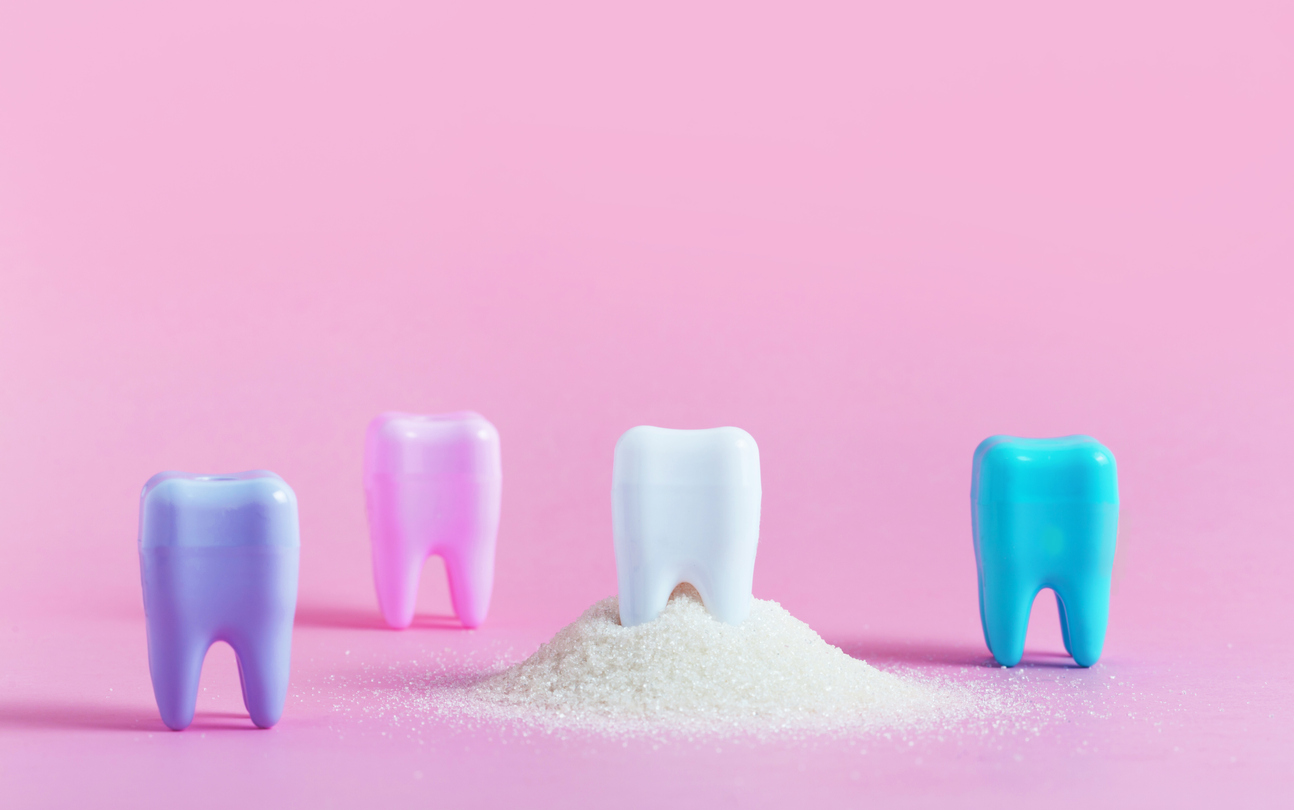
Tooth decay factors to consider:
- Sugar – Without free (added) sugar your teeth do not decay, period.
- Decay-producing bacteria in the mouth – Not everyone has these. That is why some people can eat a lot of sugary things and their teeth do not rot. However, other parts of their body will suffer instead, like the liver.
- Teeth – Without teeth then the bacteria have nothing to attack.
- Time – It takes a minimum of three months for teeth to decay.
#2 Gum disease
Eating added sugars will increase your body’s inflammation.
We know that gum disease in diabetic patients is more aggressive, leading to faster breakdown of the gums and the bones around their teeth, eventually resulting in losing their teeth.
We also know that the chronic inflammation in gum disease actually contributes to further diabetic complications.
Someone with diabetes needs to clean their teeth more thoroughly and see their hygienist and dentist more regularly. This will not only prevent gum problems, but will also stop complications in the rest of their body.
#3 Discoloured teeth
We all have millions of bacteria in our bodies, most of which are vital for our health.
However, some of these bacteria cause tooth decay and gum disease, the most common being Streptococcus mutans. These bacteria in your mouth react with sugar to produce acid.
This acidic environment is created within just three to five minutes of eating and does not recover for 45–60 minutes.
The first stage is white (acid burn) marks on your teeth.
You can often see these in patients who have fixed braces (train tracks) removed. After time these turn to brown marks.
Left long enough it leads to a hole in your teeth. These white and brown marks are permanent and cannot be removed. Dentist can mask them with materials like ‘Ikon’ or composite bonding.
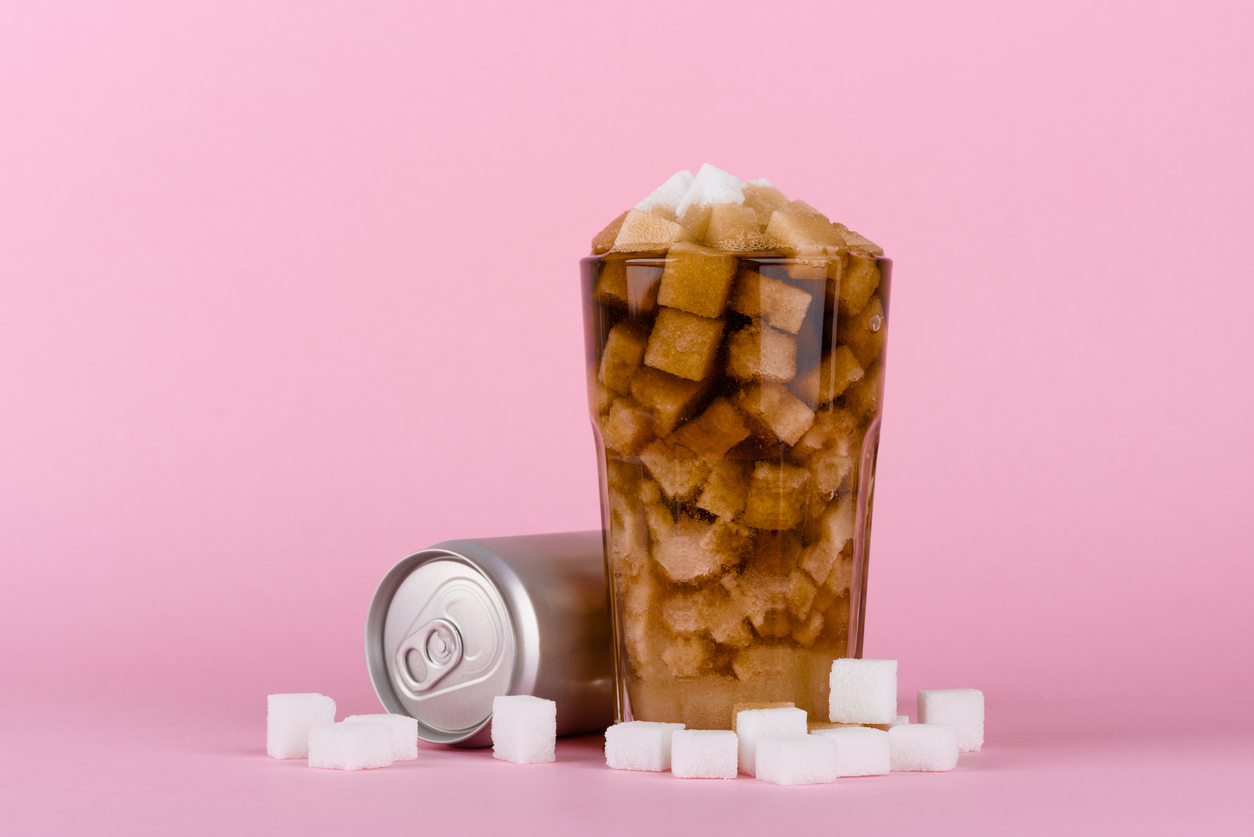
#4 Bad breath
Long-term, high sugar intake can change the bacterial population of the mouth (oral microbiome) leaving you with more bacteria that causes bad breath.
This microbiome has long been known to be a reservoir for infection at other places in your body.
Oral bacteria easily get access to the bloodstream via the gums or cavities in teeth which can lead to infectious endocarditis and brain and liver abscesses.
#5 Crowded teeth
Dr. Weston Price, an American dentist in 1939 published ‘Nutrition and Physical Degeneration’, giving evidence for the connection between the western diet of processed foods and sugar leading to the development of irregular jaws with crowded teeth and poor bites.
Of particular importance was maternal nutrition before pregnancy right through to early infancy.
He suggested grass-fed meats and organ meats such as liver, eggs from pastured chickens, raw milk and butter, cod liver oil, fish eggs, fermented foods (cheese, yogurt, sauerkraut, etc.), soaked nuts and freshly prepared grains, and fresh vegetables. These foods supplied important nutrients such as vitamins A, D, E, and K2.
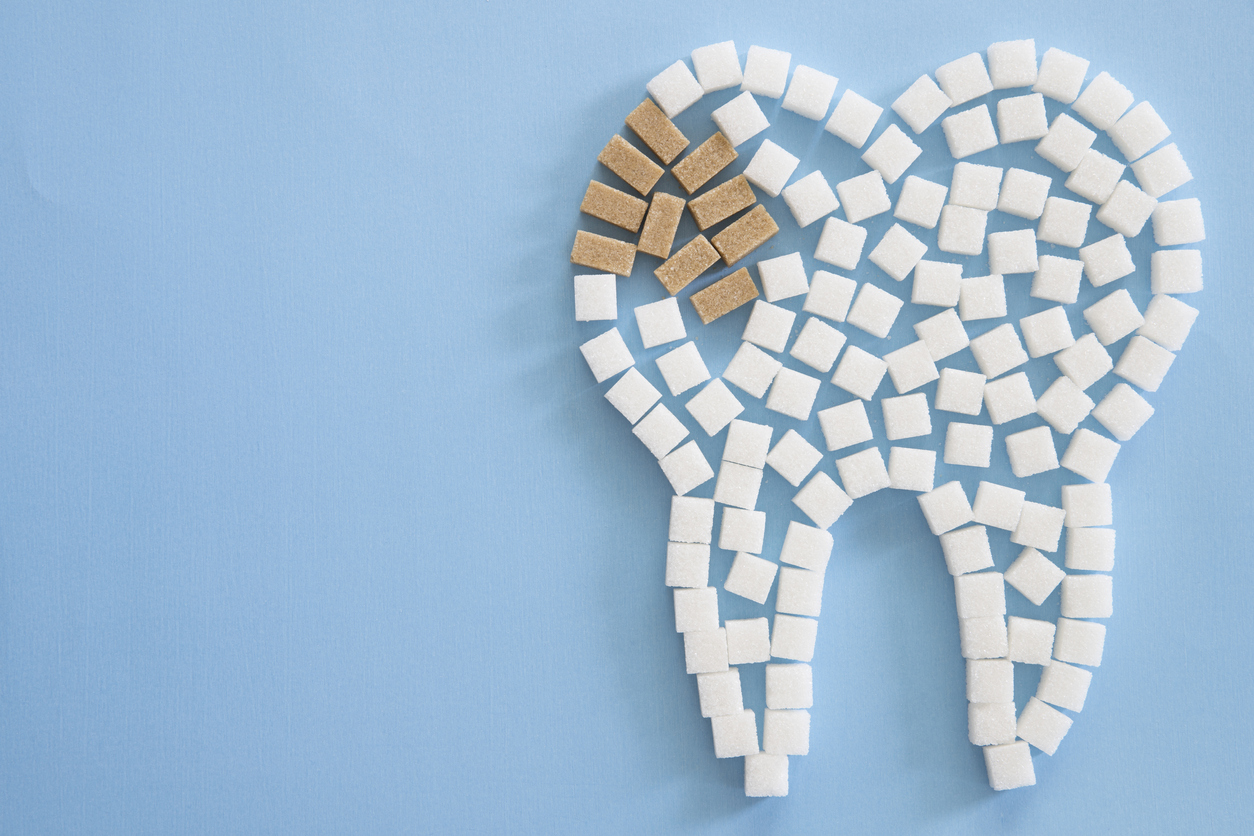
#6 Heart disease
Increasing evidence shows that chronic infections, like those that result from gum disease, play a role in the development of heart disease.
It is thought that the connection is related to widespread effects from the body’s inflammatory response to infection.
#7 Cancer
This is less agreed on. Multiple studies have shown sugar and high insulin levels are associated with insulin like growth factor (IGF-1) which can “enhance tumour cell proliferation” and “may interfere with cancer therapy”.
James Goolnik BDS MSc founder of Bow Lane Dental is on a mission to help the world to kick sugar. Along with a leading nutritionist, Jenny Phillips, and TV chefs Katie and Giancarlo Caldesi, he has written a new charity cookbook called ‘Kick Sugar’ to help people reduce the sugar in their diet permanently.
All profits from the sale of Kick Sugar will go to Rewards Project, which improves the health and well-being of children by transforming how we use sugar-based foods and drinks to reward good behaviour.
You can also follow him on Instagram
Relevant Healthista Content
How much sugar are you REALLY eating? Food diaries revealed
6 easy swaps to lower your sugar intake
More Healthista Content
7 easy hair growth tips for long, luscious locks
3 easy vegan soup recipes to warm you up this winter
Arthritis? Joint pain? 6 natural solutions that work
Got back pain? These 27 tiny changes to your day can help
Like this article? Sign up to our newsletter to get more articles like this delivered straight to your inbox.



